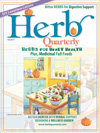Contemplating your life
Our Waka Challenge continues!

The Meiji Emperor, whose waka were used by Reiki founder Mikao Usui
By Beth Lowell
Contributing Editor
Over the past week, I’ve been reading waka by many masters, both ancient and contemporary, continually fascinated by how few words it takes to say so much. I’ve been looking closely, trying to learn just how it is that each writer makes that magical leap that takes his or her experience out of the every day and turns it into something both universal and extraordinary. Of course there is no single answer since everyone writes differently.
I’ve also been reading more about the waka itself – how its various incarnations changed in style and feeling through the centuries – from feminine to shogun style, or from lyrical introspection to “mad” poems – ones that strove not for any kind of musical quality, but that were funny or satirical. Some waka followed different line and syllable patterns, and others, like the collaborative form called Renga involved elaborate rules for execution, including the participation of many authors, and certain subject matters, which were to be included in a defined number of stanzas in a particular order. Some Renga reached 1000 stanzas. Luckily for Reiki Digest waka challenge participants, these fell out of favor during the reign of the Meiji Emperor so we won’t be asking you to try to come up with one for next week.
Instead, for inspiration, I turned again to the Meiji Emperor, and in my reading, I learned that he did not intend his writing for any lofty purpose, and he did not attempt lyrical beauty or contemplative subject matter. He wrote them, rather, as a daily exercise. It is also documented that this is precisely why his waka resonated so strongly with people.
I came across a few of the emperor’s waka, most of which I had never read before. Because they have come from different sources and translations, the form and tone are not consistent. What is consistent though is the picture of the Meiji Emperor that emerges; and that is as one of a man who did not think of himself as better than others, and one who often reflected on ways to improve himself. He contemplated the futility of anger as well as the importance of fearlessness, integrity, humility and compassion. His ruminations reflect principles that are the cornerstone of Reiki.
1.
UNIVERSAL BROTHERHOOD
It is our hope
That all the world's oceans
Be joined in peace,
So why do the winds and waves
Now rise up in angry rage?
2.
PINE
In a world of storms
Let there be no wavering
Of our human hearts;
Remain as the pine tree
With root sunk deep in stone.
3.
I wish my mind clear like great people unknown but have great mind and soul. Though I am the Emperor, I am not a great as a human.
4.
For the times to come
And of meeting what must be met
All of our people
Must be taught to walk along
The path of sincerity
5.
People in this society worry too much and overly cautious about everything. We all make mistakes sometimes.
If you're interested in learning more about the Meiji Emperor online, visit the Meiji Shrine web site, where you can also read more about waka.
Recommended books are: The Making of Modern Japan, and Emperor of Japan.
This week, we invite you to submit your waka – in any form that you choose, and remember, that sometimes contemplating the ordinary events in our day to day lives can lead us to some surprising places. Just add it (or them!) as a comment to this post, or email your waka to editor @ thereikidigest.com
































0 Comments:
Post a Comment
<< Home